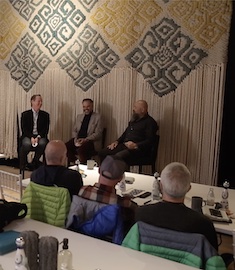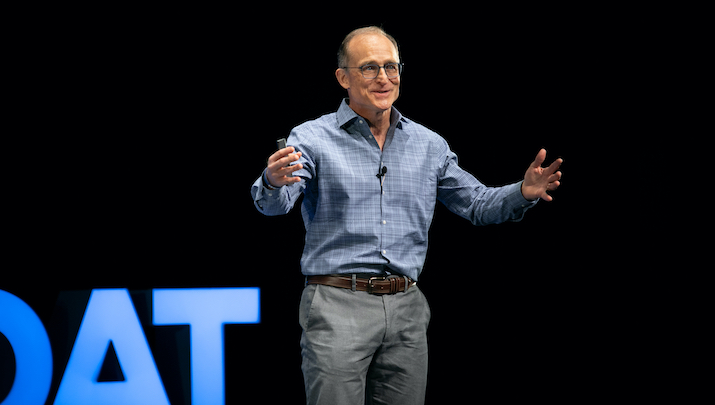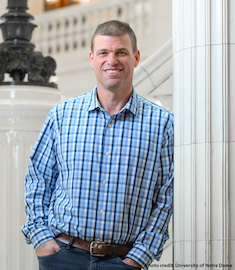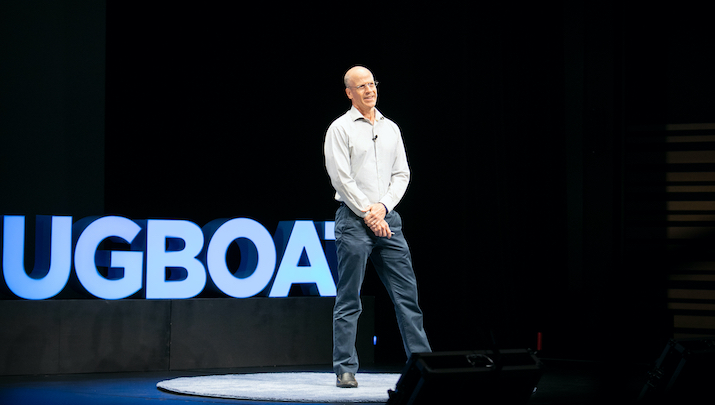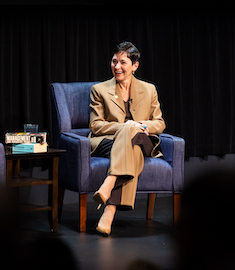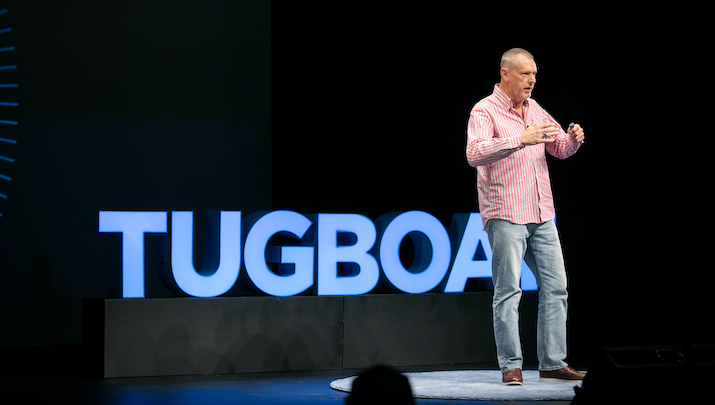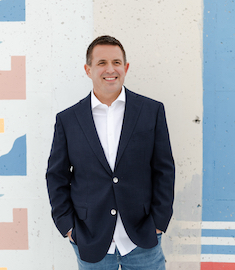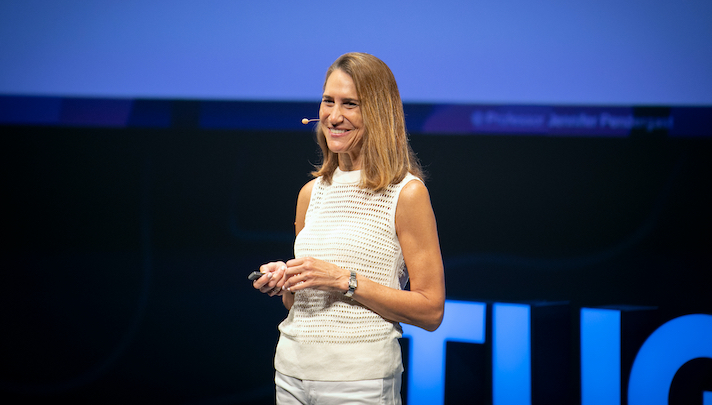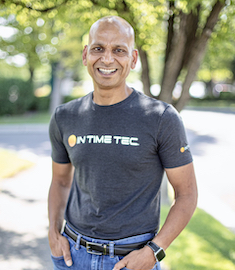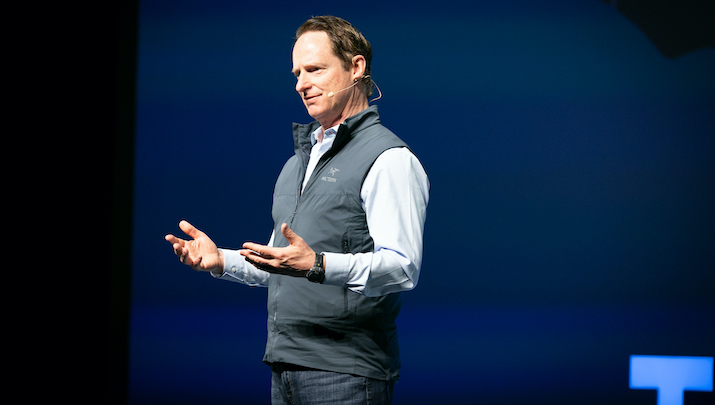Tugboat Institute 5HQ @Clase Azul
When the global pandemic hit in March of 2020, it was clear that Tugboat Institute® needed to reimagine how members could safely connect and learn from each other. Armed with a little pragmatic innovation, the Tugboat Institute @5HQ series was launched in October 2020. This unique program was a twist on our traditional Fall Exemplar visit. Instead of diving deep into one Evergreen® company, members had the ability to choose a more intimate experience with one of five companies based in five different regions of the US, with morning presentations live streamed to those who could not join in person. More importantly, each of the five host companies was run by a Tugboat Institute member—delivering on the intention to create a rich, robust, and relatable peer-to-peer experience while honoring health and safety protocols.
Each participating company opened their doors to lay bare their histories, cultures, best practices, missteps, key learnings and long-term goals. In return, hosts received the benefits of honest, straightforward feedback from fellow tribe members along with valuable insight on potential blind spots through Tugboat Brain Trust exercises.
The final @5HQ visit took place with Clase Azul in New York on November 19, 2021. Technically the festivities started the night before with a gourmet dinner hosted by Clase Azul Founder and CEO, Arturo Lomeli, and President, Juan Sanchez. Each course of the meal was paired with a Clase Azul premium tequila and a colorful telling of the spirit’s backstory. It was a once-in-a-lifetime experience.
The following day Arturo and Juan warmly welcomed Tugboat Institute members in-person and virtually to their new Clase Azul Loft in Brooklyn—a first as the space had not yet been opened to the public. The schedule included the highs and lows of Arturo’s personal journey starting the company in 1997, the pivotal decision to partner with his brother-in-law, Juan, in 2002 and the constant evolution of the Clase Azul brand that currently includes six companies—alcoholic beverage production, two import companies, an artisanal ceramic factory, a non-profit organization, and a third-division football team.
Throughout the day, Arturo and Juan candidly discussed their audacious goal to build the first Mexican luxury house. They also shared the secret to their successful partnership—trust and balance. Arturo sets the "what" and Juan sets the "when". According to Arturo, “We maximize the strengths of each other.” Juan took a more philosophical approach by comparing their relationship to the ancient Chinese yin and yang concept—or as Juan puts it, “yin and Juan”. Regardless of the description, it was clear that both men were deeply aligned and commitment to their company’s mission—to share happiness and captivate the world through the magic of Mexican culture.
We are grateful to all the members who hosted and participated in the Tugboat Institute @5HQ series. The exchange of knowledge, the support and the comradery that is at the heart of all Tugboat Institute events was particularly present during the behind-the-scenes look at these five member companies. A perfect example of Evergreen leaders at their best. Salut!
Susanne Lally is Director of Marketing and Partnerships at Tugboat Institute
Where Will You Find Your Next Great Hire?
The COVID-19 pandemic accelerated upheaval in the US and in the workforce, specifically, widening the opportunity gap and leading to job losses that have disproportionally affected low-income individuals, minorities, and women. At the same time, this period has seen the acceleration of automation and digital technologies, creating a need for millions to transition to new jobs.
In this talk from Tugboat Institute Summit 2021, Steven C. Preston, President and CEO of Goodwill Industries International, describes how Goodwill is working to close the opportunity gap by providing skills training, support resources, and career path mapping for people who may just be your next great hire. Steve notes, the time is now for Evergreen® leaders to open the aperture on talent and make a difference by seeking diverse, motivated employees whose lives can be transformed by the opportunity of fulfilling work.
A 100-Year-Old Company’s Plan To Reach Its 200th Anniversary
Our company, HB Global, provides commercial and residential mechanical, electrical, and plumbing construction, installation, and service. We have been growing for over 100 years and we plan to continue to grow for the benefit of our employee owners for another century—at least.
Founded in 1914 by Herbert Bassett McClure, the company initially grew at a slow and steady pace, becoming a household name as a residential service business in the central Pennsylvania market. From the 1960s through the early 2000s, Bill and Bob McClure led successively with a growth mindset, expanding the business to include commercial contracting.
When I joined the company in 2008, right before the Great Recession, it was a roughly $30 million business. In 2021, we expect to do about $400 million. We average about 10 percent organic growth each year, and we’ve made 18 acquisitions since 2011.
We prioritize growth for two key reasons, and both revolve around our people. First, as a People First, Evergreen® company, we empower our employee owners to make this a great place to work —where they can thrive, embrace opportunity, and develop their careers. Second, we want to create long-term value for our employee owners, providing individuals who work for an HB Global company financial security now and in retirement through our Employee Ownership Stock Plan (ESOP).
Growing A Great Place To Work
Over the course of my career, I’ve been through periods at other organizations during which, whether due to factors within a company or as a result of external market forces, a business was stagnant. And maybe it’s due to my personality, but I have never been happy if I don’t have an opportunity to grow and learn.
I want the same for our team. At HB Global, we want people to feel energized by the dynamic, positive momentum generated by growth. We want to create a company that breeds excitement and energy, a place and a mission that inspires people to contribute each day because they have a collective stake in our success.
Growth is also critical in allowing our organization to continually offer team members new opportunities for challenge in their professional lives, which leads to greater job satisfaction and better overall quality of life. Whether a person is offered a stretch assignment, a new role, or an opportunity to gain expertise in an entirely new area as the company expands, growth allows employees to develop professionally and personally.
Growing To Create Long-Term Value For Employee Owners
We transitioned from private, family ownership to 100 percent ESOP in 2010, and creating long-term value for our employee owners is another significant factor in our desire to grow.
Among the management team, the transition to ESOP instilled a new focus on taking actions that would create value for our employee owners. When we had a stock price and could observe the impact of specific actions on that price, we became hyper-focused on growth. We saw that connection initially on organic growth, and as we started to do acquisitions, because of how the valuation process works with an ESOP, we could actually put a dollar figure on the value that was created from the acquisitions, adding fuel to our fire for growth. To see the impact on an individual’s retirement as the company grows and the value of their stock rises is pretty phenomenal.
Pacing Our Progress
We’ve had a lot of success with acquisitions, and it’s exciting to see the impact of that growth. But we recognize that there is real risk when you start to think you have the Midas touch. That’s about the time you start to have real problems.
We aim to maintain a paced approach to growth in two essential ways. First, we closely manage our debt to EBITDA level. Second, we keep an eye on culture, and we are very intentional about acquiring only companies that align with our values of trust, team, grit, and growth. We put a lot of energy into the due diligence process of each acquisition. We are committed to assessing the values and culture of each potential acquisition. At each step of the process, as a team, we are asking, “is this really going to work post-transaction?”
We don’t have any trouble saying no to a deal if we feel that alignment in values is missing. We’re not in a race to grow for growth’s sake—we want to be sure we’re maintaining the values and culture we’ve built over 100 years.
Navigating The Challenges And Change That Come With Growth
I don't think there's any doubt that while we've been growing through acquisitions for 10 years, we are still learning every day and balancing our desire for growth with our awareness of potential pressures and pitfalls. We’re asking ourselves all the time, what is that optimal growth level? How much can we handle?
In our current discussions, the biggest challenge we are navigating is the optimal level of autonomy among our divisions and how we will develop and scale our leadership and operations team as we grow. We have eight divisions operating in eight states and in the U.S. Virgin Islands, and we are thinking through how much institutional control we want to implement over those divisions.
I have served big bureaucratic organizations and have seen the plus side of more corporate governance as well as the downside. Today, we have a fairly small team at our operational headquarters, and I have a tendency to err on the side of caution when adding more managerial process to what we're doing. But I also know that our operations team wants us to be world class and make an impact as we grow, so we are consistently debating where we should implement more structure or process and how much to centralize as we grow.
Leading Growth
As an Evergreen® leader, I’m grateful for the flexibility of a long-term, paced approach to growth. We want HB Global to be around 100 years from now, and I’m going to keep leading with that long-term time horizon in mind. As we continue to grow, my goal is to empower our team to take the actions that will maximize the experience of our employee owners and keep our values at the core.
Bob Whalen is President and CEO of HB Global, LLC.
The Power Of Changing How We Think
When Tom Rosztoczy’s father, Ferenc, arrived in the US from Hungary in 1957 with a degree in chemistry and applied for a job as a chemist, he learned that without a degree from a US university, he would be paid less than the standard salary for the role. Presented with such a clear message about the value of a US education, Ferenc went on to earn a PhD from University of California before taking on the role of President at his father-in-law’s company, Stotz Equipment.
Today, Tom leads that same company, which includes Stotz Equipment, a John Deere dealership with 25 stores in eight western states, Stotz Dairy, and Stotz Farms. When Tom and his wife, Jill, considered how they could partner in a philanthropic effort to benefit their community, the value of a college degree—so central to the family’s story—shaped their mission.
Together, Tom and Jill founded The College Promise program, a partnership with local public schools, which has transformed the lives of students and families. In this talk from Tugboat Institute® Summit 2021, Tom shares the story of his and Jill’s effort and the life-changing results.
Tugboat Institute @Edward Jones: Trusted Relationships
The Tugboat Institute® tribe gathered in St. Louis last week for Tugboat Institute @Edward Jones. This was our 9th Fall Exemplar visit and offered an in-person as well as virtual experience to more than 100 Evergreen® CEOs. Edward Jones is an Evergreen company with $1.7 trillion of assets under care. Their 19,000 financial advisors serve over 7 million clients from 15,000 offices located in approximately two-thirds of counties in the US and all 10 provinces in Canada.
Edward Jones was established in January 1922 by Edward D. Jones—known to most in the firm as Mr. Jones Sr.—who devoutly believed that all people who work for him deserved respect and fairness. He and his son, Ted, who joined the firm in 1948 as its 18th broker, shared an abiding passion for the business they were creating.
In contrast to their competitors in the securities industry that focused on cities with offices teaming with brokers, Ted had the visionary idea of serving farmers, small businesses and families in small American towns. He knew they had financial resources but were overlooked by the traditional investment companies. Peter Drucker would later call this “a market in contemplation.” To serve these people, Ted developed the idea of a single financial advisor in each small town and encouraged every advisor to knock on doors introducing oneself personally. This was a groundbreaking business model and sparked other disruptive innovations that Edward Jones follows to this day.
In 1972, John Bachmann, Ted’s successor, wrote a short memo that redefined the course of the company with the forward-thinking concept of expanding from their current 100 offices to 1,000 while still holding true to the core value of providing exceptional service to clients in rural markets. John ended his revolutionary memo with the missive to, “Act boldly now.” In fact, at the opening of its 1,000th branch in 1986, John raised the bar again, announcing his new Big Hairy Audacious Goal (BHAG) to establish 10,000 offices across North America and continue the tradition of building hyper local business—one financial advisor at a time.
John served as the third managing partner of the firm for an unprecedented 24 years. The position would later be filled by Doug Hill and then Jim Weddle. Each played a critical role in the development and success of the firm. For our exemplar visit, we had the privilege to have the firm’s sixth managing partner in just under 100 years host the experience—Penny Pennington.
Penny assumed the role in 2019 and shared with our members her view of a managing partner that remains consistent with her predecessors, “I didn’t take this job to be a caretaker.” Rather she is raising the ambition of Edward Jones by moving the company from a mission-driven firm to a purpose-driven one—where Edward Jones’ purpose sits at the headwaters of the firm’s culture, strategy, trade-offs, and execution. Along with this shift, the company is taking a “human centered” approached to complete wealth management for their clients.
During a fireside chat with Dave Whorton that kicked off the exemplar, Penny was clear that the success of Edward Jones is not accidental or inevitable. This candid conversation also allowed Penny to share in-depth her life story, the history of Edward Jones, and how the Evergreen 7Ps® principles come to life at the firm.
After the fireside chat, executives and leaders from Edward Jones gave a series of presentations on Evergreen practices instituted at the company, followed by frank Q&A sessions. The first talk focused on Purpose, and how Edward Jones’ purpose is the north star, and the “why” for the firm. Next the team presented the cultural and people practices necessary to make the purpose a reality. Their presentation expounded on the 5 mindsets that are integral to the company: lead by example, establish a place of belonging, continue learning, make effective decisions and grow community impact. As Penny eloquently put it during the Q&A after this presentation, “Being better versions of ourselves as human beings allows us to be better for our clients.”
Additional sessions included discussions on pragmatic innovation, the strategic advantages of ownership, the investment philosophy of Edward Jones, creating leaders and leadership capacity, the elevation of ethics beyond mandatory compliance, and the crucial role of volunteering and outreach projects that make a difference in the communities where associates live and work. Our membership was also treated to a talk by the firm’s fifth managing partner, Jim Weddle, who shared one of his greatest life lessons, “What got you here might not keep you here or serve you best.”
Those who attended were gifted with a deeper understanding that Edward Jones is a purpose-driven, dynamic, adaptive, learning organization that will continue to thrive and positively impact clients, colleagues, communities and society. It is this sentiment that makes Edward Jones exceptional and one also shared by the 200+ members of Tugboat Institute that commit every day to building leading and lasting Evergreen® companies.
Susanne Lally is Director of Marketing and Partnerships at Tugboat Institute.
Foreign Market Entry To Power Sustained Growth
Before he earned a PhD and began pursuing research in the field of sustained growth, Dr. Gary Kunkle worked in 38 different countries as the founder and CEO of an international trade and investment agency and as a senior manager of international trade and investment for KPMG.
Dr. Kunkle’s professional experience and his academic research have provided him unique insight into factors that lead to successful geographic expansion—one of six key variables necessary for sustained business growth. In this talk from Tugboat Institute® Summit 2021, Dr. Kunkle offers key tactics for Evergreen® leaders considering expansion into new markets and provides advice on common pitfalls they may face.
How The Great Recession Helped Us Survive The Pandemic
When the Great Recession hit in 2008, I was five years into my career at Lloyd Companies, the full-service real estate firm founded by my aunt and uncle, Pat and Craig Lloyd, in Sioux Falls, South Dakota in 1972. As 2008 approached, we were coming off of our best years ever, having evolved to offer development, real estate, construction, and property management.
But the Great Recession would force a reckoning for our company and prompt us to make significant changes—changes that would ultimately allow us to survive through the recent pandemic as well. There’s no doubt in my mind that navigating that intense period strengthened our business, helping to ensure the long-term sustainability of our company.
Partnership Parameters: Good Partners Want Good Partners
My uncle Craig loves people and appreciates nothing more than seeing others succeed. As he and Pat built the business, he enjoyed working with friends and acquaintances in the community to develop properties. He sealed deals with a handshake, and he always honored his obligations.
But in 2008, when many people were overleveraged and without the cash reserves to uphold their obligations, we found ourselves scrambling to satisfy the banks when called to make up partners’ debts as well as our own. We depleted our cash reserves and stretched ourselves thin. It was clear that we needed to take a hard look at how we identify more financially conservative partners and implement best practices around our operating agreements.
That awakening prompted us to execute a process of due diligence in our operating agreements, wherein, together with our banks, we work to vet potential partners. This allows us to approach each deal with sound financial footing and assurance of a shared, mutual responsibility. Having seen how quickly things can fall apart in the face a financial crisis, we added critical clauses and language to formalize agreements and structure terms to ensure that each partner will be protected in worst-case scenarios.
In the years since, as we’ve developed projects with these guidelines in place, the process has been affirming. The reality is, good partners want good partners, and the upfront work to ensure a healthy partnership leads to long-term success and good will.
In addition to key learnings around partnerships, the drain on our cash during that period focused our attention on the importance of significant cash reserves. As property developers, we’re not averse to risk, and there were times in the past when we had operated from a cash-poor position, but the Great Recession provided a view into the potentially dire consequences to businesses that weren’t able to pull through due to a lack of cash. Having experienced that impact, we committed to maintaining a minimum of three months of operating cash on hand to be able to pay our people and maintain normal business operations should we have completely exhausted our emergency reserves and have no incoming revenue.
Planning and Process: Building Structures for Long-term Success
As we navigated the impact of the Great Recession on our bottom line and implemented key guardrails to protect the business moving forward, the need for defined leadership and strategic planning also became clear. We saw our industry hit hard, and we understood that if we wanted to build a sustainable business for the long-term, we needed to plan for that future.
Craig had spent years with his fingers in all aspects of the business—the visionary founder who still managed all divisions. Through 2008-2009, we felt the strain of that model. We were running really thin. Pretty soon, that became unsustainable. Craig was essentially managing all divisions, but he recognized at that point that it would be necessary to install key leaders to be accountable for each division and help guide us through this tough period. Having served in a variety of positions up to that point, I was given the opportunity to become the head of the construction division, my first key leadership role.
As we began to develop leadership of the various divisions, we also saw the need for strategy that existed outside the founder’s head and a clear plan for succession. That recognition led to the first strategic planning efforts in the company, in which we developed a seven-year plan to build out leadership structure and plan for my succeeding Craig as CEO in 2015. Craig’s daughter, my cousin Christie, stepped away from an operational role in property management to lead family governance efforts at the same time, which led to the creation of our advisory board, among other key planning efforts.
Pandemic: Preparation and Purpose
Those intense years of effort responding to the lessons of the Great Recession brought significant change to Lloyd Companies. We are now a team of 230 people with nearly $1 billion in assets under management in three offices and two states. We have a senior leadership team of nine and managers in place across seven divisions.
The development of that team, the formalization of many operational and partnership processes, and the commitment to cash reserves all proved essential in seeing us through the recent pandemic. While there were significant differences in the way the most recent period of challenge affected our business, having the security of cash on hand, resilient leadership, and reliable partners provided assurance that we would be able to care for our team, support our customers, and meet our financial obligations.
While I believe all of those changes have been and will continue to be factors in our sustainability, I think it’s our core value of long-term relationships—internally and externally—that has been, and will remain, the thing that carries us forward.
When our team was faced with the immediate impact of the pandemic on the business and on their personal lives, we moved ahead to operate from that foundational value to serve customers and support one another. Because if there’s any lesson to be gleaned from times of challenge, it’s this: you will typically not be judged by your character, demeanor, abilities, or limitations during the good times; however, your actions and the way in which you act will be highly scrutinized in the toughest of times. Fortunately, 2021 will be the best year in the history of the company.
Chris Thorkelson is President and CEO of Lloyd Companies.
Securing Your Legacy: Paths From Founder To Evergreen
Family ownership of a business is complex, and, in many cases, questions around succession and leadership transition can present founders and next-generation leaders with significant challenges.
Jennifer Pendergast, Executive Director of the John L. Ward Center for Family Enterprises at Kellogg School of Management, Northwestern University, has deep knowledge of the dynamics facing multi-generational family businesses. In this talk from Tugboat Institute Summit 2021, Jennifer shares insight into how families committed to an Evergreen® horizon can successfully navigate leadership transitions to ensure long-term success for their company.
From $1 A Day To CEO: A Remarkable Entrepreneurial Journey
I was born in a small town in Northern India, about 100 miles from Delhi. I lost my father when I was two-and-a-half, and my mother raised myself and my four sisters on her own from that point forward. She put what she could on the table through sewing work and rent from a small shop my father had owned, and we survived on about $1 a day.
From my earliest memories, I was well aware that as the only male child in our family, it would be my responsibility to provide for my mother and my sisters. Any hopes of rising up from poverty were on my shoulders. When I reflect on my experience, I see the childhood that was lost to me. I see the challenge into which I was born. But at the time, I just put my head down and did what I had to do. Aware of my need to be the breadwinner, by the time I was about 10, I became focused on that role. I thought to myself, okay, if that's how my life is going to be, then I need to perform. I need to produce results so that my family can survive.
The sometimes painful and challenging years that followed, as I made my way through childhood, pursued my education, entered into the professional world, and ultimately founded a company of my own, taught me that when you go through difficult times, you can become revengeful, or you can become resourceful. I always had the awareness in my heart and in my mind, that though I was enduring challenge life could be better.
From that awareness grew a commitment to create abundance—for my family and for others. I understood that people who experience scarcity, who don’t have enough food on the table, struggle not just for practical survival but to be kind and to experience joy and peace. And so, from childhood, I moved toward opportunity with one question in mind: How can I elevate others? This Purpose has steered me through pivotal choices and experiences in my life’s journey and now guides my Evergreen® company.
The first step toward opportunity—for me and for my family—was my realization that to move up and out, I needed an inroad to acceptance by my peers and my community. I was bullied at school and had few friends, and I was intensely aware of the need to overcome that isolation and become valued if I was going to make my way in the world.
The game of cricket offered me my first lessons in earning respect—and how that respect would create opportunity to elevate myself and others. Initially, I had no skills, and no equipment of my own, and other kids wouldn’t let me play. But I persevered, improved, and produced great results for the team. We won championships, and I won respect. With that respect came the opportunity to carry people along with me, to raise others up.
Success on the cricket field, alongside academic honors that led to tutoring work and brought income to our family, helped propel me forward in my small community, but I faced other challenges when I left home. At 15, I left our town and spent two years at a junior college that was unaccredited, wasting time and incurring debt that was a burden on my family. I hadn’t done the research to understand the system, and I returned home feeling defeated.
That was a dark period, but it offered an important lesson: falling short is a part of life; keeping that shortfall from becoming a failure is the only way to survive. As I had on the playground, on the cricket field, and in the classroom, I said to myself: I’ll do better next time. If I don’t try harder, I won’t get a chance to play. If I don't get a good score on this test, people will not respect me. I knew I had to make things happen for myself to be able to fulfill my dream of creating abundance for others. Failure was not an option.
I left home for a second time at 17 and spent three years at a different junior college. I worked incredibly hard and earned entrance to the most prestigious engineering university in India—National Institute of Technology. I also met my wife, Vijju, the love of my life, in those years.
Having spent what added up to five years in junior college, I entered into university a couple of years older than most of my peers. While I had considered those early years wasted, I realized in that setting that the challenge and life experience I had lived through had in fact offered me a gift of hard-earned wisdom. In the university setting, I had the opportunity to share that gift as a mentor to younger students. I had entirely lacked mentors in my own life, and I was happy to have the opportunity to provide support and guidance to others who might feel alone.
With my degree in hand, I left university intent on finally fulfilling my responsibility to my family and my commitment to helping others. I took my first job with the intent to pay off my family’s debts, marry, and move toward the possibility of entrepreneurship. It was always in my mind that starting my own business would provide the path to creating jobs, and thereby abundance, for others, and the potential to take that step drove me forward.
With that goal in mind, I initially had no intention of moving to the U.S., but three years after I graduated, a recruiter offered me the opportunity to come to the U.S. I saw the offer as a chance to learn and grow, to gain knowledge that could potentially expedite my entrepreneurial dream.
In March 1999, I landed in L.A. with a suitcase and $120 in my pocket and was hired by HP in Boise, Idaho a month later. I spent six years in Boise, honing my skills and developing technology. Vijju joined me shortly after I was hired by HP, and we built a nice life. But I kept thinking that while I had achieved my goal of lifting my family up and creating abundance for myself, I hadn’t yet given back to others in the way I had always envisioned. To do that, I needed managerial experience to move further ahead, to understand how to develop people and create more opportunity.
I took a position leading an HP team in India, learning key lessons around developing people—and affirming some aspects of management I knew to be true. Specifically, my time in India confirmed my understanding that people don’t leave companies, they leave people. As a leader, I committed to showing up for my team and to taking a deep interest in their work, their lives, and their families. I knew that if people understand that you genuinely care for them, they will follow you. If you use them as a commodity, they will stay as long as they have no choice, but they will leave as soon as they have a better offer.
In 2009, the time was right to take those lessons and my long-held passion for entrepreneurship and build a business. Together with a few former HP colleagues and a long-time friend, we founded In Time Tec, a software development company headquartered in Boise. Our shared expertise in software products and services offers clients meaningful software solutions, but from day one the business was created first and foremost as a platform for developing people and contributing to the world. Our Purpose, from the beginning, has been creating abundance; we just happen to build software.
Today, In Time Tec employs 650 people in the U.S. and India, and we continue to grow through our own profits for the purpose of creating jobs and developing people. We bring people together to serve clients with a shared value system based on trust, transparency, integrity, and leadership. What excites me as we grow is the opportunity that growth provides to help people find peace and happiness, joy, and self-expression.
As I look ahead, I’m more focused than ever on developing people. I spend significant time mentoring our team and educating myself in business and personal development to continue to build our culture of learning and offer opportunity to our team. I’m moving toward becoming more of a “Chief Mentoring Officer,” rather than Chief Executive Officer, but I'm not in a hurry, and I am not working on a set timeline. I want to ensure our longevity by developing other leaders who will uphold our legacy and embrace the opportunity to lift more people up.
It’s a gift now to reflect back on the arc of my journey. The abiding sense of opportunity and abundance that I felt beneath the surface of my life, even in the darkest and most challenging times, propelled me always forward toward this entrepreneurial dream that I’m living now. My goal, as ever, is to continue to use the gifts of my experience to create abundance for others.
Jeet Kumar is the CEO and Co-founder of In Time Tec and the author of the book, Insights into Creating Abundance
The Moment Of Divergence
When Tugboat Institute® CEO Dave Whorton began his career at Kleiner Perkins, he was presented a “playbook”—a guide that defined early venture capital (VC) investment as a strategy focused on profitability and sustained growth. In 1995, with the historic public offering of Netscape, that playbook was thrown out and VC entered a new era. Get big fast.
In this talk from Tugboat Institute Summit 2021, Dave shares his personal experience of witnessing that “moment of divergence” and how that seismic shift in VC investment shaped the way companies are built, scaled, financed and exited along with how that deviation impacted CEOs, employees, customers, suppliers and communities. Dave also describes how private Evergreen® companies offer leaders, teams, and society an alternative model of doing business—one that recognizes the role of business as a force for good.
